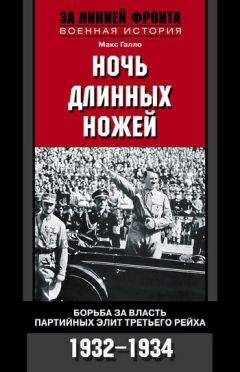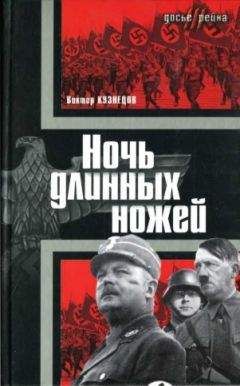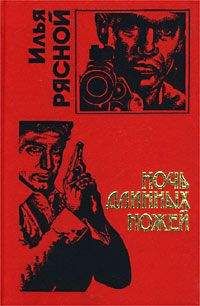Michael Dibdin - Dark Specter
I was taken back to my cell and locked up.
23
Long, low rolls of surf broke ceaselessly on the shore, collapsing into shallow sheets of water sweeping up the level beach, then draining away again, leaving the sand smooth and glistening. The sun stood high in a flawless blue sky, but a strong breeze kept the air cool.
The beach stretched away for miles in either direction, apparently as endless as the Pacific itself. The few people in sight-adults sunning themselves, children playing in the sand, an older couple walking their dog-made the landscape appear still emptier and more vast.
A woman basking in the sun looked up and called to a boy paddling at the edge of the waves.
“Thomas! Don’t go in any further!”
“It’s OK, Mom.”
“Just keep nearer in, OK?”
Testosterone, thought Kristine Kjarstad. He knows there are dangerous currents and that the water is icy, but he sees those facts as a challenge, not a threat, something to test himself against. And it will get worse as he gets older, until in the end I’ll lose all control. A father could still impose his authority, even once the child grew bigger and stronger than him, simply by drawing on years and years of conditioning. But all a mother had to offer was love and indulgence, and one day that might not be enough.
Such moods came on her very rarely, and were more frightening as a result. Most of the time, Kristine felt vaguely ashamed of being such an irredeemable optimist, convinced against all the evidence that things were basically OK and that the exceptions she encountered in her everyday work somehow conspired, in some way she had chosen not to examine at all closely, to prove that rule. But her abortive trip to Chicago and Atlanta seemed to have broken her spirit. Everything seemed bleak and hopeless, even her ability to do her job. I’ve been faking it all these years, she thought, and they just found out.
“They” meant her chief, Dick Rice, who’d summoned her on her return. The worst thing was that he’d been pleasant, too pleasant, the way you are with people you think don’t quite get it and never will.
“You had the makings of a nice little case there,” he’d commented. “Too bad the perps can’t talk, but at least they got what was coming to them. We ought to be grateful to those gangsters, they saved us all a ton of time and money. Now, Kristine, what I want you to do is forget the whole thing and get on with your job. I realize that everyday crime here in King County may not have the same glamor as a nationwide murder hunt, but the work is there and somebody’s got to do it.”
Kristine had tried to take the Chief’s advice, but it hadn’t helped. She just didn’t seem able to accept the fact that she had come so close to cracking such a huge and obscure conspiracy, and had failed. As Dick Rice had said, the perpetrators were dead, along with an unknown number of their victims. No one would ever know exactly how many people they had killed, let alone why. In one sense it was over, but in another and more important one it would never be over, not for her. She felt that she had been presented with the great chance of her life, and that she’d blown it. Nothing would ever change that.
This realization had triggered a severe attack of depression, in the course of which she not only lost all interest in her work but also came down with a bad cold. It was only when the physical symptoms appeared that Kristine did what she should have done right away, and applied for two weeks of the leave she had coming. Since the weather was good, she had decided to get away not just from work but from the city itself, away to this remote beach on the Olympic Peninsula, the very edge of the continent.
They were only staying a few days, but already the change had done her some good. Thomas, too. He was in mourning for Brent Wallis, who had finally left for Europe with his parents. For a while Thomas had been inconsolable, but in this different environment he finally seemed to have accepted the loss of his friend.
Looking up to check on him, Kristine was relieved to see that he had teamed up with an older boy. The two were busy whipping a beached log with lengths of the tough, snakelike seaweed with which the tideline was littered. The boy’s parents, a hearty couple with a red Jeep four-by-four, had gone off jogging along the beach. If only a family like that would take the Wallis house for the summer, Kristine thought wistfully. But the chances were almost nil, although she’d mentioned it to Paul Merlowitz at the lunch they’d had when she got back from the east. That had been one of the few good things that had happened to her since then.
She’d forgotten just how funny Paul could be, and how closely connected laughing and loving were in her mind. No sooner had she sat down than he’d launched into a story about some guy he knew, a state prosecutor who’d been questioning a child witness in court during a sexual abuse case. The point had been to establish whether the kid knew the meaning of the terms involved, and the prosecutor had led her gently through a verbal multiple-choice exam.
“Is this a penis?” he’d asked, pointing to his ear.
“No,” the girl had replied.
Pointing to his nose, “Is this?”
“No.”
Paul Merlowitz had broken off to order a glass of Oregon pinot noir.
“Then he points to his head, says, “Is this a penis?” And the kid nods and goes, “Yes.” Result, he not only lost the case, he’s now known around the DA’s office as Dickhead.”
While she was still laughing, Merlowitz suddenly demanded, “OK, what did the guy do wrong?”
Feeling put on the spot, Kristine shrugged. Merlowitz smiled and answered his own question.
“He broke the oldest rule there is in this business. Never ask a witness a question if you’re not sure what answer he’s going to give.”
“Maybe we should worry a little less about the rules and a little more about justice,” Kristine replied, nettled by his condescending tone. “If the jury system means anything at all, it means ordinary people working out the truth for themselves.”
Paul Merlowitz closed his eyes.
“Kristine, Talmudic scholars teach that every verse in the Torah has forty-nine different interpretations, each equally valid. Truth isn’t some commodity you buy at Fred Meyer. We’re talking about an exercise in damage limitation. The best we can hope to do is to recognize and control our ignorance.”
And to make a damn good living off of it, thought Kristine as the first course arrived. But she didn’t say anything, and the lunch had passed agreeably. When she mentioned the Wallis house, Paul-punctilious as ever-had promised to see what he could do. As she watched him noting down the details with his Mont Blanc pen, Kristine had felt a stab of pain at the contrast between his organized, methodical efficiency and her own sketchily improvised existence. Paul Merlowitz would never have wasted his time agonizing over something he couldn’t control the way she had with the Dale Watson fiasco. If he had a failure, as even he must occasionally, he would forget it and move on.
Trying to shake these gloomy thoughts, she rooted around in her beach bag for something to read. She had brought a novel along, but wasn’t making much progress with it. Eventually she found a copy of the local paper they had given her at the motel, or “Inn” as the place called itself. Besides the expense, another good reason for not staying longer was the management’s attempts to give the place what they imagined to be an upscale feel. Every item on the menu came “complemented” with something or “served on a bed” of something else. If she hadn’t had to look after Thomas, Kristine would have taken her chances at a bar in the hard-bitten logging community a few miles down the road.
The best thing about the newspaper was that it had no time for such ingratiating gentility and mock cosmopolitanism. The tone was that of the reader board she’d seen at a cafe in Hoquiam on the drive over: WE DON’T SERVE ESPRESSO. The lead stories concerned a crisis in the logging industry, the ongoing political fight about the threat to the habitat of the spotted owl, and a controversial proposal to upgrade the coast road by building a short cut through an Indian reservation. Buried on an inside page were short items off the wire about the situation in Bosnia and the Republicans’ proposals for balancing the budget.
On page 6, in a border around a huge ad for a local furniture store, she found a follow-up piece about the shoot-out among that religious cult on the San Juans. Kristine had been following this vaguely-it had been big news for a few days-but she found it hard to get interested. It sounded like one of those Waco-style things, or that guy in Guyana who got all his followers to kill themselves. You knew these people were out there, but it didn’t seem to have much to do with real life. She felt sorry for the children who’d been dragged into it, but apart from that it was like the drug cartels or the Mafia. Let them kill each other off as much as they wanted. It just saved the taxpayers money.
Kristine raised her eyes from the paper. Someone else had said that to her recently. Of course, it was Dick Rice, talking about the shoot-out in Atlanta. Well, it was cynical, no doubt, not the kind of thing you could admit to in public, but nonetheless true. Ideally criminals should be brought to trial and sentenced according to the law, but in practice the police were overextended, the jails bursting and the streets unsafe. Despite Paul Merlowitz’s Talmudic wisdom, anything that helped even the score was welcome as far as she was concerned.
She returned to the story. Two women who had escaped from the blazing building were said to be cooperating with the authorities. The police didn’t seem to be giving much away at this stage, beyond saying that the killings had been the result of a power struggle for control of the cult. One other survivor, a man, had initially been detained but then released pending further inquiries. Forensic work was continuing, but was hampered by the fact that none of the victims had as yet been identified. It wasn’t even clear how many people had been living on the island in the first place, let alone who they were.
Kristine Kjarstad folded the paper up and stuffed it back into her beach bag. It was time to forget all about stuff like this and just veg out. She should make it a rule not to read the paper or watch the news, maybe not even answer the phone once they got home. The good weather was supposed to hold up through the next week. She would just lounge around the yard, maybe do a little gardening, bask in the sun and try to forget all about the violence that her work brought her into daily contact with. She needed to put things in perspective, to get centered again. And when her vacation time was up, she would go back healed and strong, ready to tackle the cases that came her way one by one, not obsessing about any of them, no longer feeling that it was her business to solve the problems of the world singlehanded.
She checked her watch and called Thomas, who turned, eyeing her warily.
“V?r sa god!” she called, using her mother’s Norwegian expression for calling people to the table.
“Whaaaat?”
“It’s time for lunch, darling.”
“Aw, Mom!”
“Aren’t you hungry?”
“But we’re just killing these guys!”
“All right, five minutes.”
Shrieking their delight, Thomas and his new friend got to work with the seaweed whips again. Their delirium reminded Kristine of her confrontation with Eric when she picked up Thomas on her return from Atlanta. Her ex-husband had objected to two aspects of his son’s life. The first was an “apparently uncontrolled amount of time spent playing video games,” in excess of the norms laid down in a parents’ guide to the subject he had bought and insisted on her reading too. The second concerned Thomas’s current “obsession” with toy guns.
Eric had brought up all the usual arguments on this subject, from the need to teach children not to see violence as the solution to their problems, to the undesirability of reinforcing gender stereotypes. In theory, Kristine agreed with all this. The trouble was that her mother had bought the gun in question for Thomas’s birthday after taking him to Toys ‘R’ Us and hashing out at some length exactly what he wanted. It was an air-driven model which fired a brightly colored foam dart, and he and Brent had had endless fun chasing each other around the backyard with it.
It was all very well for Eric to remind her that the Parenting Plan in their divorce decree included a stipulation that toys would be chosen by both parents in consultation. He didn’t have to deal with the day-to-day business of looking after Thomas, and for that matter didn’t want to. What he wanted, and what he thought he’d found, was a way to extend his control over areas of Kristine’s life which he was no longer able to influence directly but could continue to manipulate through their son.
She got to her feet, shook the sand out of her towel and put it in her bag.
“Thomas!”
Seeing her poised for departure, he contorted his face into a pathetic mask. Kristine almost gave in, then decided that it was time for her to demonstrate some control too. Taking her son by the hand, she led him over to the red Jeep. The other child’s parents had come back from their run and were now relaxing over a power snack of carrot juice and tofu. For a moment Kristine found herself sympathizing with the author of that yuppie-bashing reader board in Hoquiam, but she would gladly have kissed up to the biggest nerd in the world if Thomas got on with his kids.
In fact the couple turned out to be perfectly pleasant, for Californians. Kristine quickly firmed up an arrangement which would leave her two hours of blissful solitude that afternoon. As she led Thomas up the flights of wooden steps from the beach to the lodge on the cliffs behind, she felt her familiar old Pollyanna self reemerging. It had been a good idea to leave Seattle, but she was always glad to get back. She would just laze around the house and let the rest of the world look after itself. Maybe Eric’s lingering influence had been partly responsible for her crisis. She should take a tip from Paul Merlowitz, and stop worrying about things she couldn’t control.
About the time that Kristine Kjarstad and her son left the beach to have lunch, a man walked into the office of a motel on Aurora Avenue North in Seattle. This was very different from the one at Ocean Shores. Aurora had once been a bustling thoroughfare, part of Highway 99 linking British Columbia and Mexico. Now all the through traffic used the interstate, and Aurora was a run-down strip of discarded dreams and broken promises. The motels which had survived were mostly on the brink of Chapter Eleven, while some of the sleazier ones functioned as business locations for the prostitutes who worked the avenue.
The one the man had chosen was on a long narrow lot between a gun shop and an auto-wrecking yard. A massive neon display on a stand sunk in a brick planter read Tuk-Inn Motor Lodge. The office was a fake log cabin with access lanes on either side leading to the rooms. It smelled of mold and cheap air freshener. There were dirty lace curtains over the windows, sad plants in pots, wallpaper with a photograph of mountain scenery repeated over and over, and a plastic sign in mock embroidery stitch that said IF YOU WANT A PLACE IN THE SUN, YOU HAVE TO PUT UP WITH A FEW BLISTERS.




